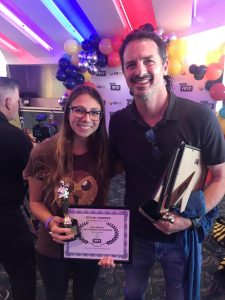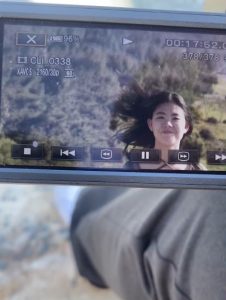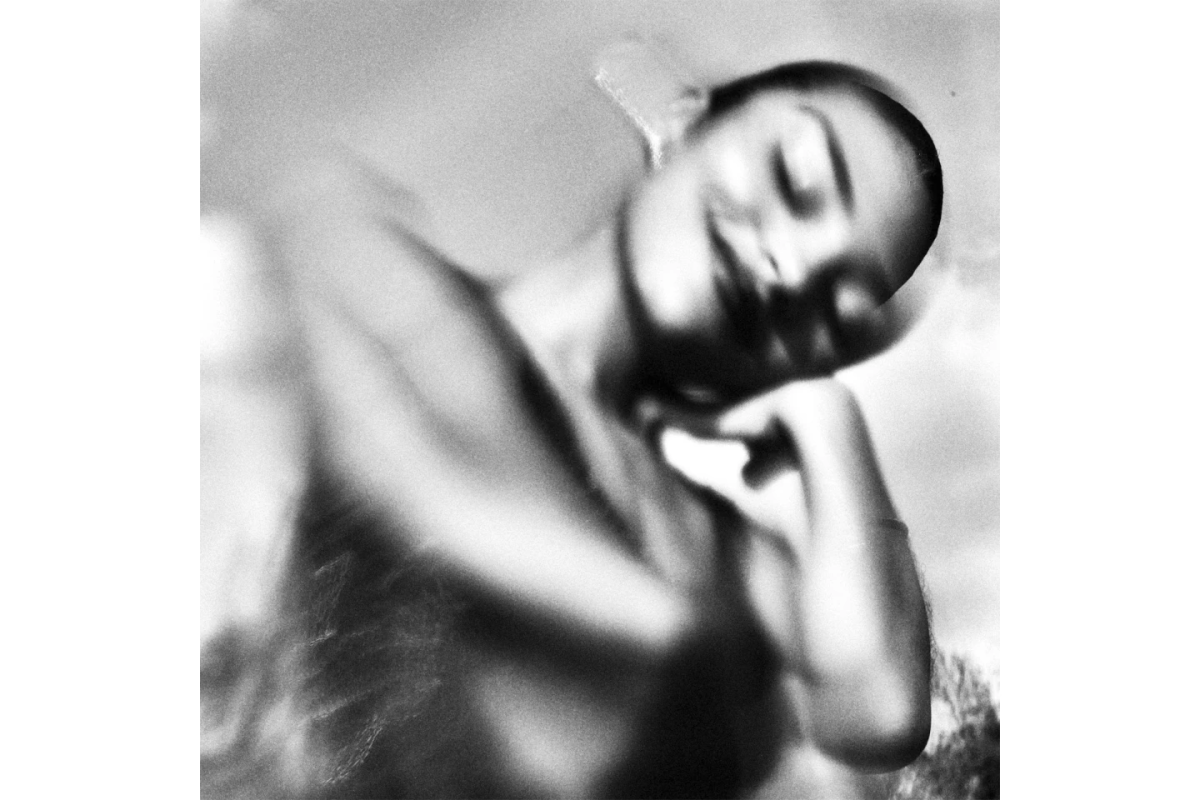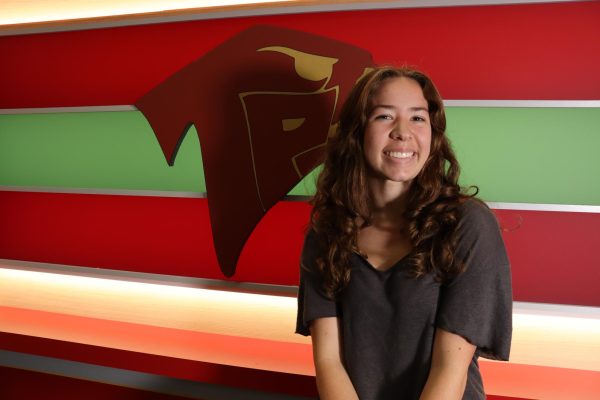While our school thrives on its notoriety in athletics, many students at the school not only dabble in the artistry of filmmaking, but actively flourish in it. Some of these students are Bailey Dotters (11) and Portia Perry (10).
Perry’s love for making films spans beyond just a desire to create videos, she also values the connection to her peers that she makes through this hobby.
“[Making films] allowed me to bond with my friends and create tangible videos which I could show to my parents,” Perry said. “As school picked up [in high school], and my perfectionism grew, I began posting less and less, but the love for making videos still held strong.”
In eighth grade, Perry submitted her short narrative film, “The Answer to Live is Pizza,” to Brown University’s internationally-recognized Ivie Film Festival in 2023 where she won an award for her short-narrative film. Her award-winning film can be found on her website, alongside several other film festival submissions and personal projects. Perry also uploads projects to her YouTube channel, @ThrowThePopcorn.
Perry is currently working on a comedy about a Girl Scout set to release in October, a PSA for Falcon Vision’s package on Suicide Prevention Month and a promotional video for the Blue Angel Snow, a ski and snowboard camp for kids ages 8-16.
After years of creating films, Perry reminisces on what hooked her to the craft in the first place.
“The beauty of moving images is what makes film unparalleled to other art forms,” Perry said. “The memories I have been able to create with my friends during the filming process are among some of my happiest. In essence, film is a place for me to be in control of my thoughts and turn them into art alongside my friends.”
As a Falcon Vision student, just like Perry, Dotters also took the precursor Video/Film I class at the school, noting how it initially shaped her perspective on the spirit of student filmmaking.
“What’s so special about filmmaking is seeing creativity from the teenage perspective — it’s just so raw,” Dotters said. “It’s so much more authentic to see a film made by a teenager featuring teenagers versus a film made by an adult with teenage protagonists.”
Dotters noted how “being your authentic self” during the creative process is essential to your project’s success, as “it reflects your mind and what you’re feeling — people can tell when you’re not being authentic.”
Although Dotters does not yet have a stable platform to post her projects on, she and her co-Associate Producer of Falcon Vision, Chase Clabo (11), hope to band more filmmakers together in their newly-instated Student Films club on campus. The club’s current plan is to produce advertisements for other clubs on campus in order to “get their name out there,” according to Dotters. The club’s meeting dates are not currently decided, but meetings will be held in Room 311 under the advisorship of Kara Adler, the school’s Video/Film, Advanced Video/Film, TV Production, Beginning Journalism I and Falconer adviser.
As a teacher to both Perry and Dotters during their times in Video/Film and Falcon Vision, Adler, explained her feeling of accomplishment related to teaching and influencing her students to make sure their voices are heard throughout society.
“I think it’s cool that younger people, now that it’s more portable, can start creating it,” Adler said. “The audience is getting a whole different demographic and a whole different voice to stories that you previously wouldn’t have heard of.”
From a societal and cultural perspective, Adler notes that it’s “awesome” that “people are starting to hear from younger generations, including who they are, how they feel, what they care about and how they view and plan to shape the world around them.”
But Adler isn’t the only teacher on campus with film experience. Having taught over 10 years at three different high schools, including TPHS and San Dieguito Academy, Eric Neubauer, the school’s Auto Technology, Auto Engine Performance and Wood Technology II teacher, has been involved in the film community since his time as an undergraduate student at San Diego State University, having done “around a couple dozen” student films in school, and then airing an estimated 150 episodes as the lead editor for a locally-produced television network show.

While producing films is nonetheless a creative task, Neubauer took on the more tactile role throughout his processes.
“One of the most important things I loved and that everyone should do is master the technical side of production, regardless of how artistic you are,” Neubauer said. “Most people don’t know how to operate a camera … [or] the equipment, and that can make or break your project.”
Although he no longer teaches the class or partakes in many projects, Neubauer continues to connect to the film community through memory.
“It’s a different form of art in that the production itself is part of the art,” Neubauer said. “I loved the idea of putting things together, getting people together and having a finished product.”
Regardless of this, both Neubauer and Adler lament on their experiences working with low-budget films, and how students today can work around potential errors during production.
“Finding good actors is definitely a roadblock to conquer, and just like in real life everywhere, sometimes there are going to be people that are harder to work with,” Neubauer said. “This can drag out time, which can make the process more expensive.”
Overall, Neubauer’s solution to solving a low-budget problem is to just “be able to work hard and not be afraid to ask for help.”
Adler, while acknowledging the stressors that come with a low-budget project, also made note of the resounding benefits.
“Now more than ever is the best time to make a low-budget film,” Adler said. “Technology is so advanced, you could literally use your iPhone. If you have a tool in your pocket, use it.”
If a student is still unsure about their role in the production process, or showcasing doubts toward their work, Adler says to “just do it.”
“I feel like so many people come in asking logistical questions like what the best camera is, and what the best editing software is, and yes, that matters, but when you get to the point of wanting to produce something, the important thing is just to do it, and learn from experience what works and what doesn’t,” Adler said.
Even from a student’s perspective, Dotters agreed with this attitude.
“My advice for aspiring filmmakers would be to just start,” Dotters said. “You don’t need a camera to begin; you can literally do it on your phone. That was the hardest part for me: I had to realize that I don’t need a whole production team to make a video, and you shouldn’t limit yourself by thinking too small.”
The school’s connection to film lives on, as some students continue their passion for the subject far after they’ve graduated. Rosie Kim (‘24) and Chloe Kim (‘24), who worked on a project together before graduating high school, fall into this category.
After acting in the film that Chloe had directed, Rosie looks back on the experience in a positive light.
“Doing that film and making films in general is special because I can keep a record of my past, and when I look back at them, it reminds me how we would laugh about anything and have so much fun exploring and not worrying about things,” Rosie said. “Creating films in general allows you to explore your style and things you like and don’t like, letting one get to know themself better.”
Chloe, with aspirations to become a potential film director or screenwriter, reflects on what creating films is really all about.

“Filmmaking is a form of communication touching upon almost the inner peripheral vision of the heart,” Chloe said. “It gives shape to our formless thoughts and projects it into a work of art that simplifies complex ideas in our real world through the disguise of characters and stories. I don’t exactly know for sure what I aspire to be, but my purpose in creating films is to speak to peoples’ hearts.”
As a sophomore, Perry still has much time to learn and grow from her teachers and peers. This, however, does not discredit her current understanding of the filmmaking process, including how she views individual voices expressed through artistry and their effects on communities.
“This intense ability to communicate ideas is why it is a crucial art form, especially here at Torrey Pines,” Perry said. “Although I haven’t been able to master film making to the point of capturing a deeply profound story, [films] are immensely important to communicating important issues and expanding people’s minds.”









